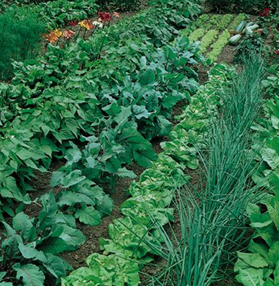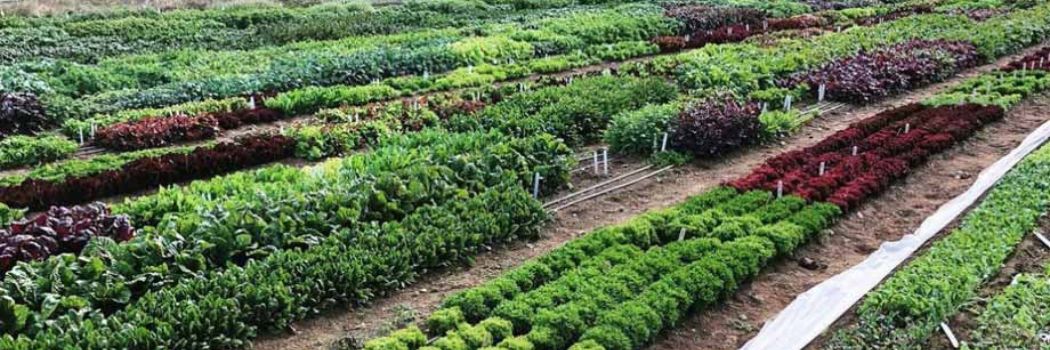Selecting Intelligently: The Ultimate List of Best Fertilizers for Peppers
Wiki Article
Nourishing Your Peppers to Excellence: Deciphering the Keys Behind the Finest Fertilizers for Optimum Plant Health
In this short article, we'll discover the tricks behind the finest plant foods to attain maximum plant wellness. From understanding the importance of soil nutrients to grasping the application methods, we'll assist you every action of the method. Whether you like natural or artificial plant foods, we have actually obtained you covered.Importance of Soil Nutrients

Among the most important dirt nutrients is nitrogen. Nitrogen is in charge of promoting fallen leave and stem development. It is vital for the production of chlorophyll, which is necessary for photosynthesis. Without adequate nitrogen, plants will certainly have yellowing leaves and reduced total vitality.
Phosphorus is another essential nutrient for plant development. It plays a key duty in energy transfer and is essential for the advancement of solid roots and blossoms. Phosphorus deficiency can bring about poor origin development and reduced flowering, eventually affecting plant yield.
Potassium is important for regulating water uptake and enhancing plant resistance to conditions and insects. It additionally contributes to the general top quality and taste of the plants. An absence of potassium can lead to weak stems, inadequate fruit development, and enhanced sensitivity to diseases.
Along with these key nutrients, plants also need second nutrients like magnesium, sulfur, and calcium, along with micronutrients like iron, manganese, and zinc. Each nutrient has a certain feature in plant development and development, and a deficiency in any one of them can have destructive effects on crop health and wellness.
Comprehending NPK Ratios

The NPK ratio is a representation of the proportion of these 3 nutrients in a fertilizer. A plant food with an NPK ratio of 10-10-10 includes equal amounts of potassium, nitrogen, and phosphorus. Because different plants have various nutrient needs, recognizing these proportions is crucial. For peppers, a well balanced NPK proportion like 10-10-10 or 14-14-14 is normally recommended.
Nonetheless, it's crucial to note that the specific NPK proportion needed might differ depending on variables such as soil kind, climate, and details plant needs. Performing a soil examination can aid identify the nutrient shortages or excesses in your dirt and overview you in selecting the appropriate fertilizer with the ideal NPK ratio.
Organic Vs. Synthetic Fertilizers
When it comes to nourishing your peppers for ideal plant health and wellness,You regularly encounter the dispute in between organic and synthetic plant foods. Organic fertilizers are originated from all-natural resources such as bone, manure, and garden compost meal. They offer nutrients in a slow-release type, permitting your plants to absorb them gradually gradually. Organic plant foods also a fantastic read enhance dirt structure and fertility, promoting valuable microbial activity. Additionally, they are eco-friendly and do not contain dangerous chemicals that can leach into groundwater or injury helpful pests and wild animals.On the other hand, synthetic fertilizers are made chemically and provide nutrients in a conveniently offered type. They are developed to provide nutrients rapidly, which can be useful in specific situations, such as correcting severe nutrient shortages. Nevertheless, synthetic fertilizers can also bring about vitamins and mineral discrepancies and soil degradation if made use of exceedingly or incorrectly. They might likewise contribute to water contamination if not utilized sensibly.
Ultimately, the choice in between organic and artificial plant foods relies on your certain needs and choices. Organic fertilizers use long-term soil wellness benefits and are extra sustainable in the lengthy run, but they may not give immediate outcomes. Synthetic fertilizers, on the various other hand, can deliver quick nutrients yet may have adverse environmental effects. It is very important to thoroughly think about these variables and choose the plant food that ideal fits your goals and values.
Best Fertilizer Application Techniques
Continuing the discussion on organic and artificial fertilizers, let's check out one of the most reliable techniques for applying fertilizers to your peppers. Appropriate fertilizer application is critical for optimizing plant wellness and return. The first step is to identify the nutrient demands of your peppers. Conduct a soil test to determine any type of deficiencies or discrepancies in the soil. This will help you select the best fertilizer and application rate.For granular fertilizers, broadcast them evenly over the dirt surface area. Make use of a spreader to make certain consistent circulation. After spreading, lightly rake the fertilizer right into the leading layer of dirt to avoid overflow and boost absorption. Water the area completely to help the nutrients penetrate the origin zone.
Liquid fertilizers can be about his used via foliar splashing or via the irrigation system. Foliar spraying entails spraying the fertilizer straight onto the leaves. This method permits for quick nutrient absorption and is optimal for correcting vitamins and mineral shortages. When using the watering system, water down the fluid fertilizer according to the manufacturer's instructions and use it equally to the soil.
Keep in mind to adhere to the recommended application rates to prevent over-fertilization, which can damage your peppers. Regular tracking and adjusting of fertilizer application is required throughout the growing season. By applying plant foods appropriately, you can give your peppers with the crucial nutrients they need for healthy and balanced development and abundant harvest.
Supplementing With Micronutrients
To make certain optimal crop health and wellness and return, it is necessary to supplement your peppers with vital micronutrients. Trace elements are crucial for the overall growth and growth of your plants, as they play a critical function in numerous physiological processes. These nutrients are required in little quantities, however their absence can badly influence the health and productivity of your pepper plants.Without adequate iron, your pepper plants might establish yellow fallen leaves, stunted growth, and minimized fruit production. You can supply your peppers with iron through foliar sprays or soil applications of iron chelates, which are easily available in garden centers.
Another trace element that plays an essential duty in pepper development is zinc. Zinc is entailed in enzyme tasks and is crucial for total plant wellness and advancement. A deficiency in zinc can result in i was reading this reduced shoot and root development, along with bad flowering and fruit set. You can provide your peppers with zinc through using zinc sulfate or zinc chelates, either as a foliar spray or dirt application.
In enhancement to iron and zinc, various other essential micronutrients for peppers consist of manganese, boron, copper, and molybdenum. These micronutrients are involved in numerous metabolic procedures and are required for optimum pepper growth and productivity. best fertilizers for peppers. It is necessary to consistently keep an eye on the nutrient levels in your dirt and plants, and make modifications as necessary to guarantee your peppers receive the essential micronutrients for healthy and balanced growth and abundant yields
Conclusion
In final thought, selecting the right fertilizer and applying it appropriately is essential for the health and wellness and performance of your pepper crops. Understanding the value of dirt nutrients, NPK proportions, and the differences between natural and artificial fertilizers is crucial.On the various other hand, artificial plant foods are made chemically and give nutrients in a conveniently offered kind. Artificial plant foods can additionally lead to vitamins and mineral imbalances and dirt destruction if made use of exceedingly or incorrectly.Proceeding the discussion on synthetic and natural plant foods, allow's check out the most efficient techniques for applying plant foods to your peppers. By using plant foods properly, you can offer your peppers with the vital nutrients they need for healthy development and bountiful harvest.
Comprehending the significance of soil nutrients, NPK ratios, and the distinctions in between natural and synthetic plant foods is vital.
Report this wiki page